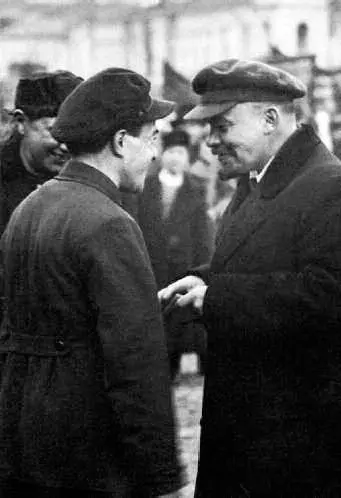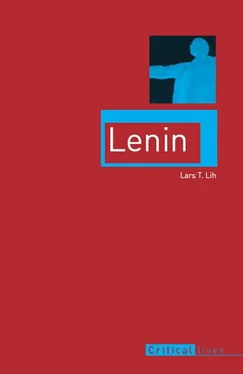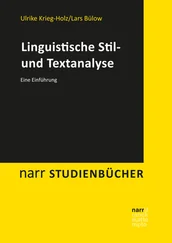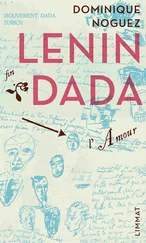Lars Lih - Lenin
Здесь есть возможность читать онлайн «Lars Lih - Lenin» весь текст электронной книги совершенно бесплатно (целиком полную версию без сокращений). В некоторых случаях можно слушать аудио, скачать через торрент в формате fb2 и присутствует краткое содержание. Город: London, Год выпуска: 2012, ISBN: 2012, Издательство: Reaktion Books, Жанр: Биографии и Мемуары, История, на английском языке. Описание произведения, (предисловие) а так же отзывы посетителей доступны на портале библиотеки ЛибКат.
- Название:Lenin
- Автор:
- Издательство:Reaktion Books
- Жанр:
- Год:2012
- Город:London
- ISBN:9781780230030
- Рейтинг книги:3 / 5. Голосов: 1
-
Избранное:Добавить в избранное
- Отзывы:
-
Ваша оценка:
- 60
- 1
- 2
- 3
- 4
- 5
Lenin: краткое содержание, описание и аннотация
Предлагаем к чтению аннотацию, описание, краткое содержание или предисловие (зависит от того, что написал сам автор книги «Lenin»). Если вы не нашли необходимую информацию о книге — напишите в комментариях, мы постараемся отыскать её.
Lenin — читать онлайн бесплатно полную книгу (весь текст) целиком
Ниже представлен текст книги, разбитый по страницам. Система сохранения места последней прочитанной страницы, позволяет с удобством читать онлайн бесплатно книгу «Lenin», без необходимости каждый раз заново искать на чём Вы остановились. Поставьте закладку, и сможете в любой момент перейти на страницу, на которой закончили чтение.
Интервал:
Закладка:
When we turn to the political impact of Lenin’s heroic scenario, we are immediately confronted with a paradox. The central episode of the heroic scenario was the battle to bring political freedom to Russia, yet Lenin founded a regime in which political freedoms – rights of speech, assembly, association, etc. – were conspicuously absent. The paradox is a real one, since the logic of the heroic scenario worked to expand Russia’s political freedom at one stage and to contract it at another. Strange as it may appear, Lenin was as influential as any other single individual in bringing about the political freedom that Russia enjoyed between 1905 and 1917. There would have been no far-reaching revolution in 1905 if sections of the working class had not been prepared to take to the streets demanding political freedom, and there would have been no mass action of this kind if a small band of socialists had not spent over a decade propagating the connection between worker interests, socialist ideals and political freedom. From the very beginning of his political career, Lenin was a prominent and passionate member of this small band.
There are many objective reasons to explain the later failure of political freedom in a country that suffered military defeat, economic breakdown and bloody civil war. Yet although the disappearance of political freedom in Russia was over-determined, the logic of Lenin’s heroic scenario also made its contribution. The purpose of political freedom in this scenario was to allow the Social Democrats to spread the word, particularly in the form of the party-led agitation campaigns that the German Social Democrats had developed to a fine art. How much more effective would these campaigns be if the party could use the state to eliminate all rivals and to monopolize channels of communication? The Bolsheviks consciously adopted this strategy of state monopoly campaignism.
Turning from Lenin’s strangely divided role in the history of political freedom in Russia, we confront another paradoxical outcome. Lenin’s heroic scenario stressed proletarian leadership of a narod that was made up mainly of peasants. The peasants thus play a highly positive role in his scenario. Indeed, pre-war Old Bolshevism was defined by its wager on the revolutionary qualities of the peasantry. Yet less than a decade after his death the regime founded by Lenin ended up by waging war on the peasants and imposing a revolution from above during the collectivization campaign, contributing to a devastating famine. How did this happen?
This is the question of questions, and I can only glance at it here. Perhaps the most important point to stress is that it is a question – that is, Stalin’s peasant strategy was not the foreordained outcome of a hostility to peasants innate to Marxism or to Bolshevism. In fact, we can say that Lenin took a dangerous step when he moved beyond Old Bolshevism’s strategy of democratic revolution alongside the whole peasantry. He first overestimated the extent of class differentiation in order to be able to take ‘steps toward socialism’ in Russia itself. He then had to recalibrate and he came up with a strategy of moving toward socialism alongside a majority of the peasantry. The cost of this adjustment was an abiding anxiety, even paranoia, about the subversive influence of the vast ‘petty bourgeois’ sea that surrounded the lonely socialist island.
Nevertheless, there is an essential discontinuity between Lenin and Stalin on the peasant question that needs to be stressed, since it is often completely overlooked, even denied. Stalin obviously took over a vision of a socialist countryside from Lenin and indeed from Marxist socialism in general. We may agree or disagree with this vision. But from the point of view both of crimes against humanity and impact on Soviet history, the thing to be explained is not this vision, but the massive use of violence in 1930–34 to impose upon the peasantry a radical change of production methods, and thus of way of life, in a very short space of time.
And on the issue of violence used to impose a fundamental change in production relations, the record could not be clearer: Lenin was against it. In word and deed he emphasized that any such use of violence was a bezobrazie , a ridiculous outrage. And he did this most insistently in 1919, at the height of the civil war. Disappointed as he was with the progress of socialist experiments in the countryside, the use of violence in pursuit of this goal was simply not considered. The radical discontinuity between Lenin and Stalin on this cardinal point was perfectly evident to anti-Stalin Bolsheviks in 1932. In an underground document circulated at this time, these Bolsheviks contrast Stalin’s assault on the peasantry to Lenin’s method of persuading the peasants by ‘genuine examples of the genuine advantages of collective farms organized in genuinely voluntary fashion’. They sardonically observe that the two methods resembled each other as much as Japan’s invasion of Manchuria resembled national self-determination. 6
All in all, Lenin’s heroic scenario was far from realistic. Yet perhaps his utter confidence in it was the necessary illusion that enabled him to confront a situation of stormy political and economic collapse. In 1917 Lenin stood tall among the leaders of other Russian parties because they had enough sense to be frightened out of their wits by the oncoming disaster – the social and economic breakdown that was just around the corner – whereas he saw it as an opportunity. Lenin can be viewed as a Noah figure, confidently building his ark as the flood waters rose. As it turned out, the ark was leaky because it was built on unsound assumptions, the voyage involved more suffering than anyone bargained for, and the ark ended up far from where its builder planned. But nevertheless the ark did ride out the storm.

Character Witnesses
I have described the heroic scenario as the link between the flesh-and-blood individual Vladimir Ulyanov and his public persona N. Lenin. This division is of course highly artificial. To give a sense of the human reality of Ulyanov/Lenin, I call on a series of character witnesses – people with some personal knowledge of the man and of the social background that moulded him.
Lenin had strong roots in the Russian literary classics of the nineteenth century, and we can appropriately turn to them for more insight into what might be called ‘the Lenin type’. Lenin always kept with him the photographs of five individuals: Karl Marx, Friedrich Engels, Alexander Herzen, Nikolai Chernyshevky and Dmitri Pisarev. Pisarev was a radical democratic literary critic of the 1860s, and Lenin cited a passage from him about the necessity of dreaming in his 1902 book What Is to Be Done? The following passage was not quoted by Lenin – perhaps because it was too close to his self-image?
The dreamer himself sees in his dream a great and sacred truth; and he works, works conscientiously and with full strength, for his dream to stop being just a dream. His whole life is arranged according to one guiding idea and it is filled with the most strenuous activity. He is happy, despite deprivations and unpleasantness, despite the jeers of unbelievers and despite the difficulties of struggling with deeply rooted ways of thought. 7
Pisarev’s stubborn dreamer was an admired type in the culture of Russian radicalism. In order to qualify, Lenin did not need to live the ascetic, self-denying life of such heroes of Russian socialist fiction as Chernyshevky’s Rakhmetov, who slept on a bed of nails to toughen himself up. Lenin once remarked to Gorky that listening to Beethoven made him feel too soft toward the bourgeoisie who could create such beautiful things. Based on this remark, many people have assumed that Lenin gave up music for revolution, but Lenin enjoyed music all his life. When the great Russian bass Feodor Chaliapin met Lenin in the Kremlin after the revolution, he was surprised to learn that this was not their first meeting. Lenin reminded him of a party at Gorky’s in 1905 when Chaliapin sang for the company. ‘It was a marvellous evening’, Lenin reminisced. 8
Читать дальшеИнтервал:
Закладка:
Похожие книги на «Lenin»
Представляем Вашему вниманию похожие книги на «Lenin» списком для выбора. Мы отобрали схожую по названию и смыслу литературу в надежде предоставить читателям больше вариантов отыскать новые, интересные, ещё непрочитанные произведения.
Обсуждение, отзывы о книге «Lenin» и просто собственные мнения читателей. Оставьте ваши комментарии, напишите, что Вы думаете о произведении, его смысле или главных героях. Укажите что конкретно понравилось, а что нет, и почему Вы так считаете.












